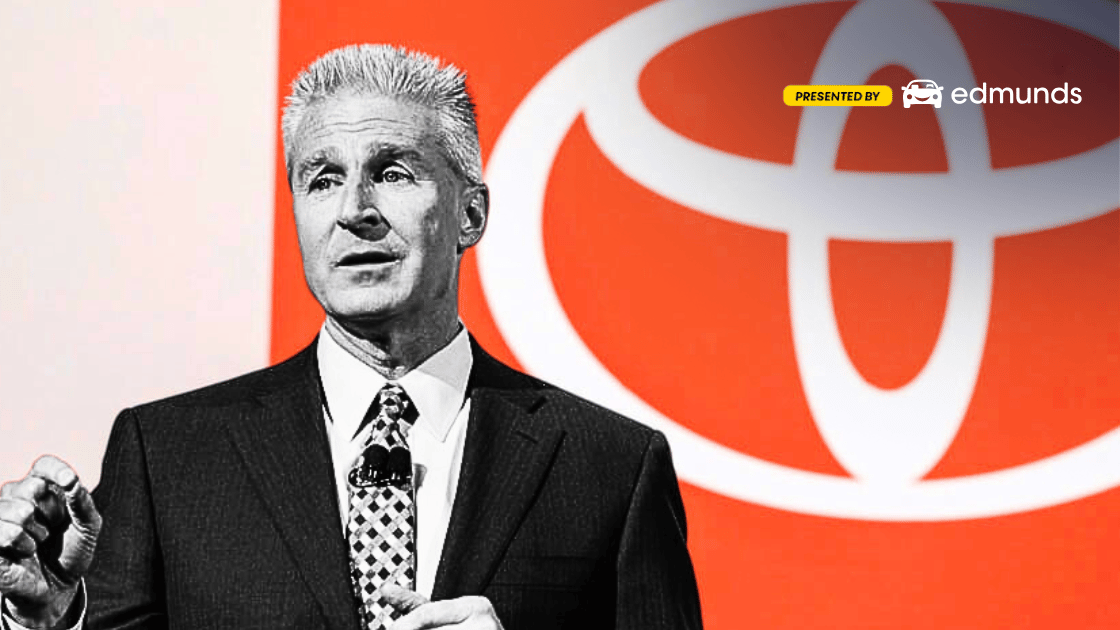Dealerships Double Down: Opposition To Electric Vehicle Mandates Intensifies

Table of Contents
Financial Concerns Fueling Dealer Opposition to Electric Vehicle Mandates
The transition to an EV-centric market requires a significant upfront investment for dealerships. This financial burden is a primary driver of opposition to electric vehicle mandates. Dealerships face substantial costs associated with upgrading their infrastructure to accommodate EVs. This includes installing expensive charging stations capable of handling various EV models and charging speeds, a costly undertaking that varies greatly depending on the size and location of the dealership.
Furthermore, the profit margins on EVs are often lower than those on gasoline-powered vehicles. This is due to several factors, including the higher initial cost of EVs and the potentially lower demand for service and repairs in the early stages of EV adoption. The reduced service revenue is a significant concern, as service departments represent a crucial component of dealership profitability.
- High cost of installing EV charging infrastructure: The expense of installing and maintaining fast-charging stations can run into tens of thousands of dollars, depending on the number of stalls and the type of chargers installed. This is a significant barrier to entry for many smaller dealerships.
- Need for specialized technician training and certification: Working on EVs requires specialized knowledge and skills. Training technicians on EV-specific diagnostics, repairs, and safety procedures is costly and time-consuming.
- Lower service revenue compared to internal combustion engine (ICE) vehicles: EVs have fewer moving parts and require less frequent maintenance compared to ICE vehicles, leading to reduced service revenue for dealerships.
- Uncertainty about consumer demand for EVs in certain regions: The rate of EV adoption varies significantly across different geographic regions. Dealerships in areas with lower EV adoption rates face higher risks associated with investing in EV infrastructure.
According to a recent survey by the National Automobile Dealers Association (NADA) – replace with actual data if available – dealership profitability has decreased by X% in regions with high EV adoption rates, illustrating the financial strain imposed by the shift.
Logistical Challenges of EV Sales and Servicing
Beyond financial concerns, dealerships face significant logistical challenges in adapting to EV sales and servicing. The sales process itself differs from that of traditional vehicles. Factors such as charging times, home charging infrastructure requirements, and the explanation of new technologies require increased time and expertise. Moreover, servicing EVs presents unique logistical problems.
- Longer charging times compared to refueling: The time required to charge an EV significantly exceeds the time needed to refuel a gasoline vehicle, impacting customer experience and dealership workflow.
- Different diagnostic and repair procedures for EV batteries and components: EV repairs require specialized tools, knowledge, and safety protocols, posing challenges for technicians accustomed to ICE vehicles.
- Specialized training needs for technicians: Dealerships must invest in extensive training programs for their technicians to acquire the necessary skills to service EVs.
- Potential for longer repair times and increased inventory costs: Repairing EV components, especially batteries, can be significantly more complex and time-consuming than fixing parts in ICE vehicles, leading to potential delays and increased inventory costs.
“The shift to EVs isn't just about selling a different car; it's a complete overhaul of our business model,” says [Name], owner of [Dealership Name]. “[Quote reflecting their concerns about logistical challenges].”
Concerns about Government Overreach and Market Distortion
Many dealerships argue that government mandates represent an overreach of regulatory power, stifling free-market competition and potentially distorting the market. They express concern that mandates could unfairly favor specific manufacturers or technologies, potentially limiting consumer choice and driving up prices.
- Concerns about the impact of mandates on consumer choice: Mandates may limit the variety of vehicle options available to consumers, restricting access to vehicles that better suit their individual needs and budgets.
- Potential for increased prices due to limited competition: Mandates could reduce competition, potentially leading to higher vehicle prices and decreased innovation.
- Arguments against government intervention in the automotive market: Dealerships advocate for a more market-driven approach to the transition to EVs, allowing consumer demand to shape the market rather than government regulation.
- Call for a more gradual transition to EVs: Instead of abrupt mandates, many dealerships support a phased approach that allows the industry to adapt more gradually to the changes.
The ongoing legal challenges and intense lobbying efforts against certain EV mandates highlight the deep-seated concerns within the dealership community.
The Future of Dealerships in the Age of Electric Vehicle Mandates
Despite the challenges, dealerships recognize the inevitability of the shift towards EVs. Survival in this evolving landscape will require adaptation and strategic planning. Dealerships will need to embrace changes, invest in training, and potentially diversify their business models.
- Investment in training programs for EV technicians: Dealerships must prioritize training their workforce to service and repair EVs effectively.
- Partnership with EV charging infrastructure providers: Collaborating with charging network providers can help dealerships expand their services and meet growing consumer demand.
- Diversification of business models to include new revenue streams: Dealerships may need to explore alternative revenue streams, such as offering subscription services or focusing on EV-specific maintenance and repair packages.
- Focus on customer education about EVs: Educating customers about EVs, their benefits, and their maintenance requirements is crucial for driving adoption.
Predictions about the future of the automotive retail industry suggest a move towards a more service-oriented model, with a focus on providing comprehensive EV-related services such as charging solutions and battery maintenance.
Conclusion: Dealerships Double Down: The Ongoing Debate on Electric Vehicle Mandates
This article has highlighted the complex challenges facing dealerships as they navigate the transition to an EV-dominated market. The financial burdens of upgrading infrastructure, the logistical complexities of EV servicing, and concerns about government overreach are all significant obstacles. These challenges raise questions about the long-term economic impacts of electric vehicle mandates and the ongoing debate between free-market principles and government intervention in shaping the transition to a sustainable automotive sector. The future of dealerships hinges on their ability to adapt to these changes. We urge readers to engage in the ongoing discussion, share their perspectives on the impact of electric vehicle mandates, and contact their representatives to advocate for policies that promote a balanced and sustainable transition to electric vehicles. Your voice is crucial in shaping the future of the automotive industry.

Featured Posts
-
 Space X Starbase Texas City Status Confirmed
May 29, 2025
Space X Starbase Texas City Status Confirmed
May 29, 2025 -
 Sfqt Naryt Bayrn Mywnkh Wbrshlwnt Fy Mwajht
May 29, 2025
Sfqt Naryt Bayrn Mywnkh Wbrshlwnt Fy Mwajht
May 29, 2025 -
 Elfelejtett Kincs A Regi Nokia Telefonod Igazi Erteke
May 29, 2025
Elfelejtett Kincs A Regi Nokia Telefonod Igazi Erteke
May 29, 2025 -
 Limited Time Offer 50 Off Arcane League Of Legends 4 K Blu Ray Steelbook
May 29, 2025
Limited Time Offer 50 Off Arcane League Of Legends 4 K Blu Ray Steelbook
May 29, 2025 -
 Debate Ensues Antisemitism At The Queensland Music Awards
May 29, 2025
Debate Ensues Antisemitism At The Queensland Music Awards
May 29, 2025
